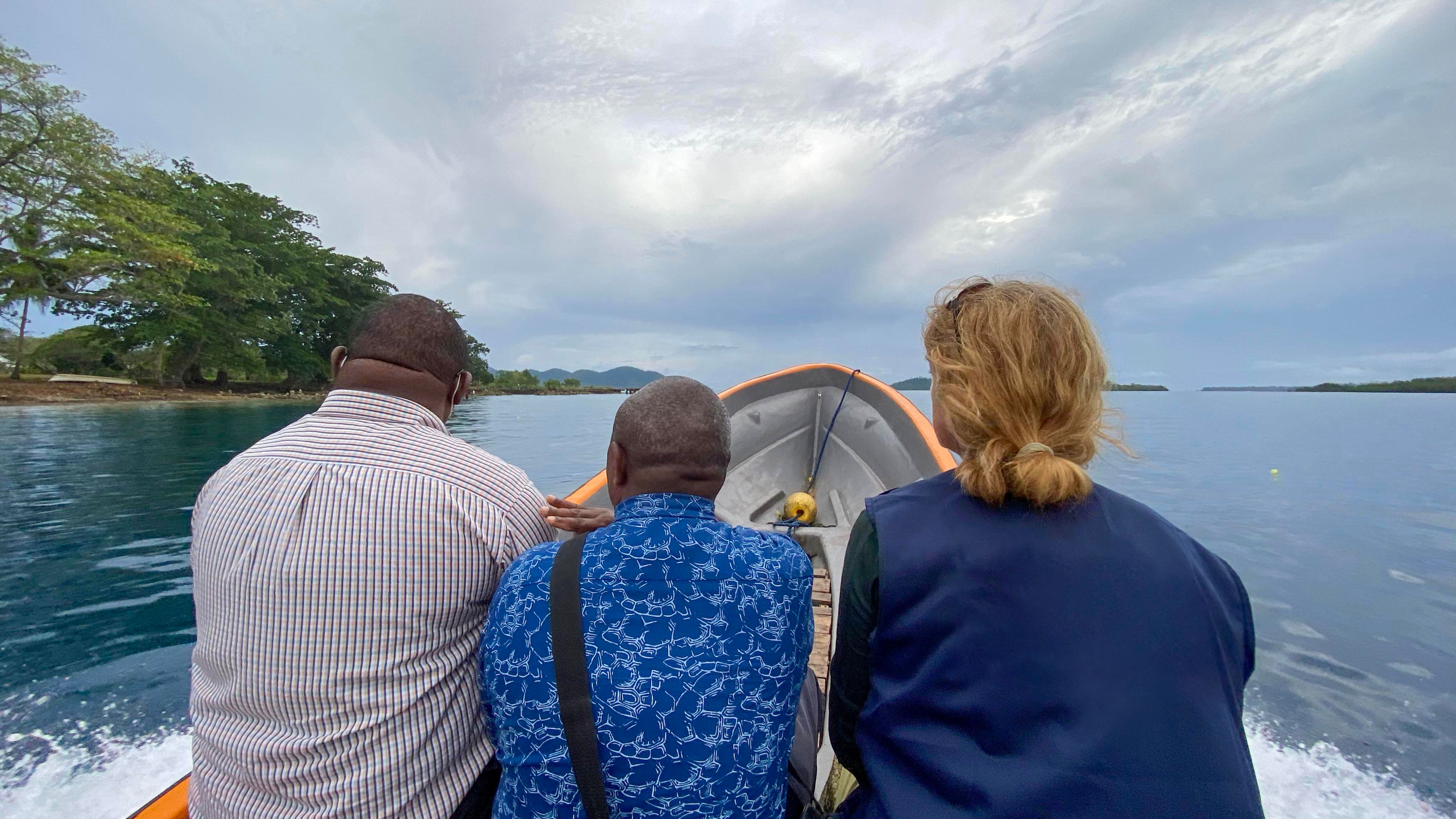MAE Alumni help create stronger health systems in Papua New Guinea and Solomon Islands

“Empowering Field Epidemiologists for Stronger Health Systems” is the theme for World Field Epidemiology Day 2022. Find out how our MAE Alumni are building sustainable field epidemiology programs in Papua New Guinea and Solomon Islands.
COVID-19 has shown us that diseases know no borders, and field epidemiologists have been at the forefront of the fight against COVID-19 worldwide. Their role is not unique to the pandemic, however. In fact, international health authorities call for at least one trained field epidemiologist per 200,000 people in every country to detect, respond to, and contain public health emergencies.
Training the next generation of field epidemiologists is the mission of the ANU Master of Philosophy (Applied Epidemiology) or MAE program. And the legacy of the MAE continues as alumni mentor and train more field epidemiologists – building sustainable field epidemiology programs, empowering and boosting the number of field epidemiologists worldwide.
Seven MAE alumni have gone on to work with Field Epidemiology in Action (FEiA) to help deliver Field Epidemiology Training Programs (FETP) and mentor public health leaders in Papua New Guinea and Solomon Islands.
“This is testament to the strength of the MAE training and the type of people it attracts to the program – those committed to strengthening systems to improve health outcomes,” says Associate Professor Tambri Housen, MAE Alumna and Team Lead for the PNG FEiA projects.
This dedication speaks to this year’s World Field Epidemiology Day theme of empowering field epidemiologists for stronger health systems.
“Empowering field epidemiologists is at the heart of FEiA’s work. Our team is passionate about translational impact, and it is only in strengthening systems that impact is sustained,” says Housen.
“We help equip our graduates with skills in collecting data, monitoring and surveillance, rapid identification and response to public health alerts or outbreaks, design and implementation of field studies, and decision making.”
Learn how the MAE prepared our Alumni to help build sustainable field epidemiology training programs and health systems in Papua New Guinea and Solomon Islands with FEiA.
 MAE Alumni form part of the FEiA team - (clockwise from top left) Megge Miller, Celeste Marsh, Callum Thirkell, Dr Tambri Housen, Stephanie Wheeler.
MAE Alumni form part of the FEiA team - (clockwise from top left) Megge Miller, Celeste Marsh, Callum Thirkell, Dr Tambri Housen, Stephanie Wheeler.
Megge Miller, Solomon Islands Program Lead, providing support to build a sustainable FETP.
The MAE taught me the technical skills around surveillance, outbreak response, epidemiology study design and data analysis. But I also learnt a lot about managing heavy workloads, talking with people from different backgrounds, how to remain calm under stress, and foundational leadership skills. Being part of the team working to build the FETP in the Solomon Islands now, I hope to contribute to the Solomon Island trainees learning both technical and soft skills that come with being a field epidemiologist.
Celeste Marsh, development and delivery of FETP and rapid response programs in Papua New Guinea.
The MAE provided an optimal combination of learning about local and international public health response structures and surveillance. It also gave me valuable opportunities to teach, prepare and deliver tutorials and lectures, and I have drawn on the course materials to develop our own FEiA content. Finally, the MAE team has been so resourceful in facilitating connections with international organisations such as WHO’s GOARN, TEPHINET and other FETPs. These have provided ongoing networks and support with FEiA work.
Callum Thirkell. FETP training, capacity building and management.
The MAE provided valuable exposure to a wide variety of frontline public health work. It also introduced me to a fantastic network and community, providing an ‘in’ to colleagues in most Australian states, which is very useful now I’m based back home in Wellington, New Zealand. I regularly communicate with this network of colleagues, which helps us both learn and develop.
Dr Tambri Housen, team lead for projects building sustainable FETP in PNG.
The MAE provided me with the core epidemiological skills needed for disease surveillance, outbreak response, and operational research – all skills and knowledge I am transferring in my current role with FEiA. The MAE also provided me with a strong network of field epidemiologists nationally and globally, relationships I have drawn on many times, and will continue to draw on in future.
Stephanie Wheeler, implementing FETP in Solomon Islands Program, mentoring Advanced FETP fellows in PNG, and leading FEiA social media and website communication.
MAE prepared me to listen, be curious and ask the right questions. It equipped me with surveillance, data management and outbreak response skills, as well as the critical soft skills like communication, and to support my local colleagues to do the excellent job they do. I feel proud to be a field epi, and to have the opportunity to work alongside and mentor field epidemiologists doing amazing work in the Pacific region.
**World Field Epidemiology Day**
As our health systems face increasingly complex threats, the role of field epidemiologists is more important than ever. Learn how ANU Alumni and students are shaping stronger public health systems at home and abroad this World Field Epidemiology Day, 9am-12:30pm 7 September.
By Liz Drummond.
